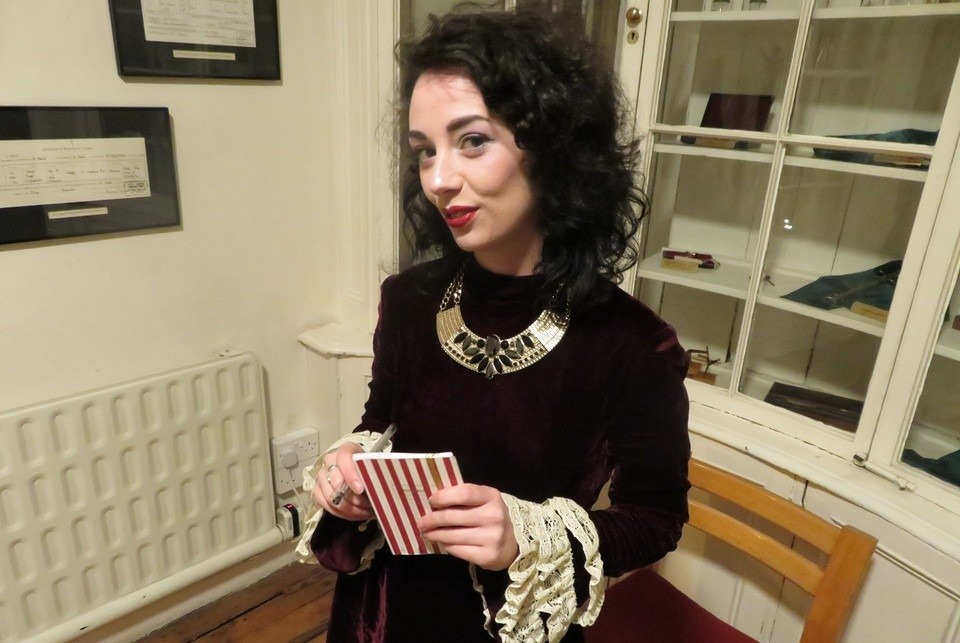Everything
Speranza’s Salon Revival
SPERANZA’S SALON REVIVED
On Saturday 16 November, shortly after 4pm, forty or so attendees, I among them, filed into the atmospherically lit dining room of One Merrion Square North, one of the most culturally significant addresses in Dublin. Although Oscar Wilde wasn’t born here – his family relocated from a modest house on nearby Westland Row when he was a tiny child – it was the Wilde family home for more than two decades until Lady Wilde, recently widowed, left for London in 1876. The occasion on this winter evening more than a century and a half after her departure was the revival of her celebrated Saturday salon, or “weekly conversazione” as she described her gatherings in a letter to her Scottish friend John Hilson. Speranza, as she was still widely known then, was immensely proud of her new home and praised it in her letter to Hilson as having “fine rooms and the best situation in Dublin”.
Looking around this now-revived building, it is shameful to think that such a beautiful house had been allowed to fall into shocking disrepair by the time it was leased by the American College Dublin some years ago. A programme of restoration has ensured that several of the rooms used by the Wilde family, including Speranza’s first-floor dining room and the drawing room where she held her salon, are now accessible to visitors. While none of the Wilde family’s imposing walnut and mahogany furniture, colourful Turkish carpets, or rich oil paintings, remain, the wooden floors and most fixtures and fittings are authentic, and period furniture replaces what was originally there. Sir William Wilde’s consulting rooms, with his cabinets restored and filled with surgical implements that are of the time though not his, are also accessible and contain several fascinating artefacts.
In the dining room where Speranza once hosted supper parties attended, as she told Lotten von Kraemer, a Swedish friend, by “clever and learned men” who discussed “all the current topics & literature & science of the day,” we are greeted by Caoimhe Lavelle, who stands at the head of the long oak table, spinning a hula hoop around her waist as she declaims her poem, “Lore”. She has a look of the lovely young Speranza about her and seems just as audacious. Lavelle curated the line-up of poets and it is fitting that she and others intersperse their own work with readings of Speranza’s poetry; Lavelle chooses the rousing “Sympathies with the Universal” while fellow poet Rúairí Conneely elects to read the rebellious “Have We Done Well for Ireland?”
An assembly of excellent poets and musicians, most of them performing acoustically, give short performances in either the dining room or the drawing room across the hall where Lady Wilde held her lively literary soirees. The audience moves easily between the two. Although Speranza favoured the company of men and invited few women, we are a far more balanced crowd. Literary magazine The Athenaeum described 1 Merrion as “the first and for a long time the only bohemian house in Dublin,” and fretted about the consequences of Lady Wilde gathering together all those “whom prudish Dublin had hitherto kept carefully apart.” Closer to home, The Irish Times attributed her success to the absence of snobbery, which was “so fatal to social gatherings in Ireland”. Certainly, there was no such snobbery in evidence during this most enjoyable twenty-first century Dublin evening. I’m sure all of us gathered on this occasion would love to believe that we fulfilled Speranza’s desire, shared in a letter to John Hilson, “to agglomerate together all the thinking minds of Dublin”.
Through the revival of Speranza’s salons the American College Dublin plans to raise money for a plaque in honour of Lady Wilde, who was a writer, linguist, poet and formidable advocate of women’s rights. There are plaques for her husband William and son Oscar on the outside of this building, and Oscar has another on his first home on Westland Row, but none yet for her. Dr Rory McEntegart, vice-president of the American College Dublin, described this first event as a dress rehearsal as he hopes to run the salons every month in the future. The college offers tours of the house and there is a plan to open a coffee shop and a small gift shop selling books and souvenirs when tours and other events resume. It is to be hoped that Dubliners and visitors to this city support these wonderful and long-overdue initiatives.
Performers for the first Speranza’s Salon included: Musicians Vyvienne Long, Sarah Lynch, Shane McKenna, The Silken Same, Adrian Crowley, Nick Kelly, Rhob Cunningham, Dave Geraghty and Tiger Cooke. Poetry readings from Niamh Beirne, Caoimhe Lavelle, Jess Bernard, Nicole Eve Rourke, Liz Curran, Freddie Trevaskis Hoskin, Ruairi Conneely, Stephen James Smith and Natalya O’Flaherty.

